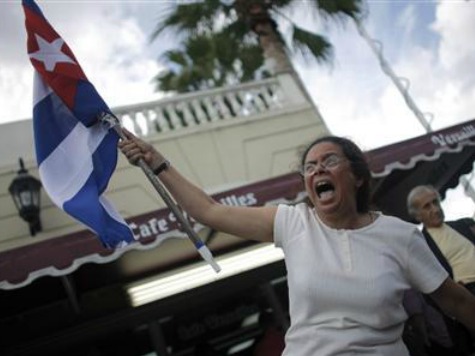
President Barack Obama used Uruguayan President Jose Mujica to deliver a letter to Cuban President Raul Castro on June 14th offering to negotiate an end the U.S. trade embargo, according to MercoPress. Obama supposedly first asked for help when Mujica visited Washington in mid-May.
Cuba has been able to survive the last 14 years of embargoes because Venezuela provided the island free and discounted oil since Hugo Chávez’s tenure. But with Venezuela is in chaos as the country is near bankruptcy as its oil production plummets from under investment and claims from President Nicolás Maduro that the U.S. is involved in a plot to kill him, Cuba could be cut-off from oil imports at any time.
The U.S. embargo against Cuba means that Cuba would have to pay a huge premium to get oil from the black market or cut a deal with the Russians, who are now trying to improve relationships with Latin America. With the “New Cold War” heating up in Eastern Europe, the United States is keen on heading off Russia reestablishing a presence just 90 miles for the U.S. coast.
But President Obama cannot lift the embargo with one of his infamous “Executive Orders” because of the 1996 Cuban Liberty and Democratic Solidarity Act. The bipartisan passed legislation requires U.S. Congressional approval to lift the embargo and ending sanctions. Such approval is subject to human rights improvements and the democratic election of a new Havana government, preferably without a Castro family member at the helm.
Since Fidel Castro died and his brother Raul became the equivalent of President for life, Raul has been slowly moving to end the stigmatization of private property and market mechanisms as a cornerstone of ideological correctness. His government drafted The 2011 Cuban Central Report to the Congress that declared concentration of property, not private property per se, is antithetical to socialism. This may sound like a small step to Americans, but in Cuba this was a huge policy change.
Stratfor Global Intelligence suggests that prisoner exchanges, such as the release of Alan Gross, a U.S. citizen held in a Cuban prison since 2009 for attempts to expand internet and communications services to Cuban nationals, would be viewed by Congress as a very popular move. Stratfor believes that Cuba faces an existential threat from the loss of Venezuelan oil. They believe that “leaks” about a pending prisoner release would be a strong sign that a larger negotiation is imminent.

COMMENTS
Please let us know if you're having issues with commenting.